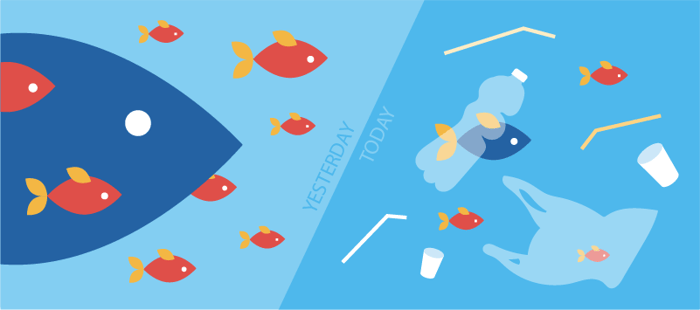Imagine sitting down at your favorite seafood restaurant, only to find it shut down because there’s no more fish left in the sea. The old saying “there are plenty of fish in the ocean” might soon become a myth if our current fishing practices continue.
The steady march of global population growth, technological advances, and increasing demand have significantly accelerated the production of fish-based foods and products. This surge has cast a dark shadow over our oceans due to rampant overfishing—where vast amounts of marine life are caught faster than they can reproduce.
If we don't pivot now, we risk not only our oceans' health but also millions' livelihoods globally.
So, you might be wondering, what makes overfishing such a dire problem? Let's delve into some alarming facts.
Alarming Overfishing Facts You Should Know
1. Surging Fish Product Demand
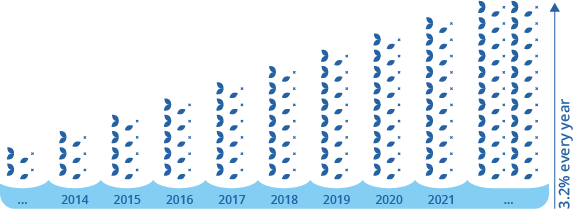
Our consumption of fish products has dramatically outstripped our population growth. From 1961 to 2015, fish consumption per person shot up from 9.0 kg to 20.2 kg—an increase of 3.2% yearly, whereas global population growth hovered around 1.6%.
Experts believe this increase in fish consumption is caused by various reasons, including increased production.
2. Fish Stocks on the Brink
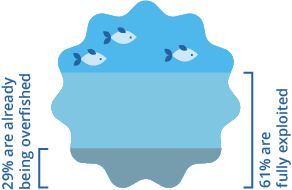
Our fishing resources are limited, and many are already running low on fish. The World Wildlife Fund states that 61% of fish stocks are fully exploited, and another 29% are overfished.
3. Excessive Bycatch
Many commercial fishing practices yield more than just the fish they aim for. Bycatch refers to all the other fish and sea life pulled up from the oceans while fishing and discarded as waste.
Experts estimate that our current fishing practices produce a staggering 38.5 million tons of bycatch yearly.
4. The Fish Oil Conundrum

The fish caught from the ocean are used for more than food. The increasing demand for fish oil supplements, a dietary supplement popular for omega-3 fatty acids, also creates a spike in fish demand.
Fish oil pills are famous for their omega-3 content, an essential fatty acid that supports heart and brain health and fights inflammation*. Unfortunately, the process of creating fish oil is long and wasteful. It involves catching vast amounts of oily fish, separating the oil from the "fish meal" using techniques like boiling and applying chemical solvents, and shipping them worldwide to reach the final consumer.
Thankfully, algae oil supplements offer a sustainable alternative without compromising health benefits. These options allow you to supplement your omega-3 fatty acid intake without contributing to the overfishing problem.
5. Sharp Marine Species Decline
According to the World Wildlife Fund’s Living Blue Planet Report published in 2015, marine species have declined by 39% over four decades, influenced by overfishing, habitat destruction, and climate anomalies.
6. Threat to Vulnerable Communities:
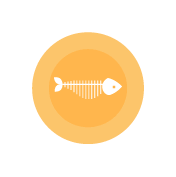
People worldwide depend on fishing as their primary source of income, and many poorer cultures also rely heavily on fish as one of their primary protein sources. If we continue the pattern of improper resource management and overfishing, those vulnerable communities could face severe economic crises and food shortages.
7. Modern Fishing Techniques Exacerbate Issues
Commercial fishing has developed practices like drift netting, dredging, and bottom trawling to increase yield. These techniques allow commercial fishing boats to pull up vast amounts of fish, contributing to the overfishing of ocean habitats.
These techniques can also increase bycatch. Casting such a wide net means that other marine life is also pulled up from their natural habitats, only to be disposed of as waste.
8. Environmental Repercussions
Besides its impact on the aquatic food chains and marine diversity, overfishing can also hurt the ocean's ecosystem.
Take bottom trawling, for example. This technique involves dragging a hefty, weighed-down net across the ocean floor. The weights used in this fishing method can weigh several tons. As it is carried across the ocean floor, it can crush and destroy fragile living habitats like coral reefs, which may never recover from the damage.
9. Certain Species at Greater Risk

Fish with a slow reproduction rate are more at risk of overfishing than others. When we fish too many of these species out of the ocean, the remaining fish don’t have enough time to reproduce and maintain their population.
One example is bluefin tuna, a species that now faces extinction due to overfishing practices. These expensive fish are especially vulnerable to illegal and unreported fishing practices, and it’s estimated that their populations have dropped between 74-80% in the last couple of decades.
10. Decline of Sustainable Fisheries
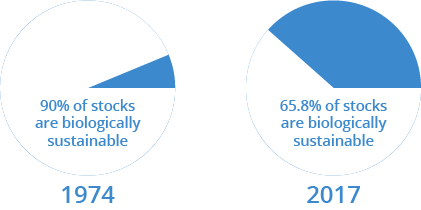
A biologically sustainable fishery leaves plenty of fish in the ocean to reproduce and recover. Unfortunately, the amount of sustainable fisheries is not as high as it once was.
In 1974, 90% of our fish stocks were biologically sustainable. When measured again in 2017, only 65.8% of our fish stocks were sustainable.
11. Aaquaculture's Double-Edged Sword
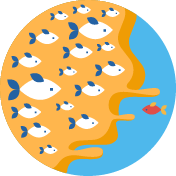
Fish farms, which grow captive fish for consumption, have developed to address the overfishing of natural ocean ecosystems. However, fish farms are also damaging the oceans in the long run.
Aquaculture can negatively impact the ecosystem of the surrounding ocean by allowing drugged or contaminated stock to infect surrounding wild populations. It could also allow escaped invasive species to compete with the native species.
12. Apex Predators in Peril
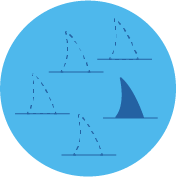
Apex predators like sharks are at the top of the aquatic food chain. They're integral to the marine life of our oceans because they can control the populations of all of the animals on the food chain below them based on their eating habits.
Unfortunately, humans wipe out more than 100 million sharks yearly, contributing to the overpopulation of lesser fish species and ultimately changing entire marine food chains. The diminishing populations of other top predators like bluefin tuna and mackerel have a similar effect.
13. Counterproductive Fishing Subsidies
Countries like the United States, China, the European Union, Korea, and Japan subsidize the fishing industry to keep struggling fishing industries afloat.
Unfortunately, this multi-billion dollar practice often incentivizes larger fishing businesses to continue overfishing rather than helping smaller, more sustainable businesses. One study estimated that $22.2 billion of fishing subsidies contribute directly to overfishing practices.
14. Rampant Illegal Fishing
Regular fishing practices are bad enough for the oceans, but illegal fishing can worsen it.
There are many rules and regulations to minimize excessive fishing, like setting quotas and prohibiting the catch of certain species to protect their populations. Unfortunately, poor management and enforcement of these rules mean that Illegal, Unregulated, and Unreported (IUU) fishing practices continue to hurt our marine ecosystems.
15. A Bleak Outlook
It’s one of the grimmest overfishing statistics: a 2006 study found that our oceans would run out of seafood by 2048 if we didn’t change our fishing habits and practices.
16. Yet, Hope Persists

On the bright side, another study estimated that we could fully reverse the impacts of overfishing and rebuild our oceans by 2050 if we changed our harmful fishing practices.
Making a Positive Impact
You have the power to help curb overfishing. The best way to limit your impact on the oceans is to minimize your fish and fish product intake.
Use vegan, plant-based alternatives to fish and seafood whenever possible. For example, swapping your fish oil pills for microalgae pills can reduce your impact on the health of the oceans. Choosing plant-based proteins like legumes, soy, and grains more often can also help.
Every conscious choice helps protect our oceans.

